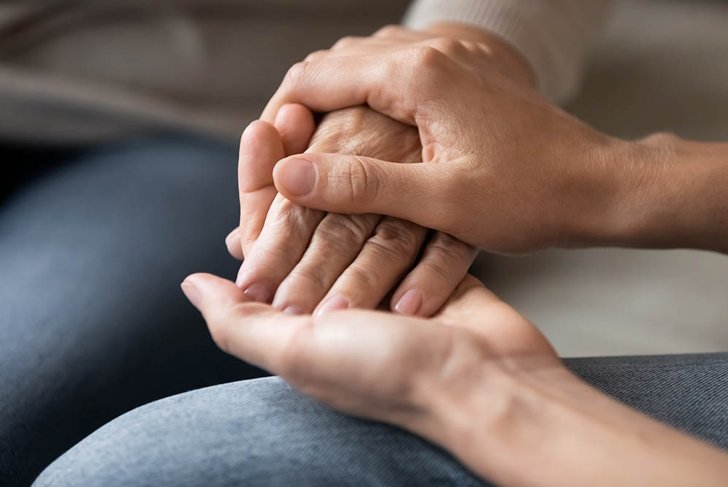
A blast from the past could be a blast for your physical and psychological wellbeing. Nostalgia — revelling in the past and reminiscing about the good ol’ days — is about more than just daydreaming. Researchers say it’s also the foundation for your health and happiness.
Modern society is increasingly focused on progress, advancement and change. But during times of stress and great social upheaval — and what part of your life didn’t experience a tumultuous change in the last 12 months? — we often reach back into the past for nostalgic memories and traditions.
Cue sourdough bread-making during the pandemic, or digging into classic comfort food when you’ve had a rough work week. The solace these things provide isn’t just your imagination. Psychologists and researchers have found that thinking fondly of the past, and embracing nostalgia, can bring 10 powerful health benefits to your life.

01
Reduced stress and anxiety
Decades of research show that chronic stress and anxiety leads to an increased risk of numerous health concerns, including:
- Cognitive decline, such as memory loss and difficulty learning
- Weakened immunity against bacteria and viruses
- Cardiovascular health problems, such as high blood pressure and heart disease
- And much more
Studies analyzed nostalgic people who regularly think about positive past experiences, such as cheerful childhood memories. They found that nostalgia helps us to better cope with stressful situations.
And it’s not just about using memories as a way to lighten life’s current burdens. Researchers also found that nostalgic individuals are more likely to take positive action during times of stress.
02
Protection against loneliness
 Health researchers warn that loneliness is a health epidemic. A lack of healthy social connection is linked with numerous health problems:
Health researchers warn that loneliness is a health epidemic. A lack of healthy social connection is linked with numerous health problems:
- A 29 percent increase in heart disease risks
- A 32 percent increase in the risk of having a stroke
- And even a higher chance of an early death
Several studies have found that nostalgic memories help combat the effects of loneliness.
When you reminisce about times you’ve been with a friend or family member and felt their love and acceptance, it can make you feel more loved and socially connected in the present.
03
Greater sense of life meaning and purpose
 A series of studies asked participants to think about their past goals and positive experiences, and reminisce about their old dreams for their future.
A series of studies asked participants to think about their past goals and positive experiences, and reminisce about their old dreams for their future.
Those who were most nostalgic had a greater sense of their life purpose and were better able to find meaning in their life’s circumstances.
Living a purpose-driven life doesn’t just boost your motivation and life satisfaction. It’s also associated with better health and a longer lifespan.
04
Improved self-confidence
 When life gets challenging, it’s easy to get stuck in cognitive distortions or mindset traps:
When life gets challenging, it’s easy to get stuck in cognitive distortions or mindset traps:
- Assuming the worst possible outcome will happen
- Dwelling on all the ways you’ve messed up or could mess up
- Over-emphasizing the negative aspects of your life (e.g., seeing the glass as only half full)
These mindsets are a form of mental self-sabotage. They stand in the way of you and your happiness and motivation to improve your life.
Nostalgia helps. People who reflect on times they’ve overcome a challenge, used a skill, proved themselves wrong, or done the impossible are better equipped to break through these negative mindset ruts.
05
Higher levels of empathy
 There’s a positive correlation between remembering the good old days, and feeling more empathetic and connected to the world around you.
There’s a positive correlation between remembering the good old days, and feeling more empathetic and connected to the world around you.
Researchers argue that the world can use more empathy these days. Empathetic people are better able to:
- Experience less stress, anxiety and burn-out
- Overcome personal differences with others
- Regulate their own emotions in healthy ways
- Collaborate, connect and learn from other people
06
Healthier, happier aging
 Graduating from high school. Getting your first job. Falling in love and having children. Retiring.
Graduating from high school. Getting your first job. Falling in love and having children. Retiring.
Much of your life’s journey is fragmented into these short chapters. And progressing through these chapters of change can be stressful, especially as you get older.
Nostalgia helps you connect the dots, experience the fullness of your experiences, and move through life with improved psychological wellbeing and less stress.
It’s also been shown to improve your idea of self-continuity — maintaining a sense of self as your world changes — and helping you to get comfortable with your own mortality.
07
Increased optimism and hope
 Looking back into your past, and reminiscing about times you won a game, overcome a challenge or achieved a goal, lets you see the future more positively.
Looking back into your past, and reminiscing about times you won a game, overcome a challenge or achieved a goal, lets you see the future more positively.
Several studies reported in the Personality and Social Psychology Bulletin show that nostalgic memories make us feel more hopeful about what’s around the corner. “The nostalgic experience is inherently optimistic and paints a subjectively rosier future,” notes the research.
“Nostalgic stories often start badly, with some kind of problem, but then they tend to end well,” Dr. Constantine Sedikides, one of the study’s lead researchers, explained to the New York Times.
08
Expanded happiness
 Spend 10 minutes thinking about a positive experience you recently had.
Spend 10 minutes thinking about a positive experience you recently had.
Then, tune in to your current emotional state. If you feel happier, you’re not imagining things.
The mental exercise involved when we’re nostalgic takes the happy emotions you might have felt in the past, and transfers them into your present state of mind.
“[Nostalgia] a sentimental and wistful longing for the past,” explains psychologist and nostalgia researcher Clay Routledge says in an interview with North Dakota State University. “At the same time an emotion and a cognitive activity, nostalgia is an activity that essentially takes a dead thing and brings it back to life and keeps it alive.”
09
More motivation to pursue healthy behaviors
 Nostalgia influences your choices and behaviours through various complex mechanisms:
Nostalgia influences your choices and behaviours through various complex mechanisms:
- It promotes your engagement in nostalgic, healthy leisure behaviours, such as playing sports and engaging in other enjoyable physical activities.
- It helps you to continue to believe in your own agency and self-control, even when facing something daunting like a chronic health condition.
- It empowers you to believe in your physical capabilities, feel more optimistic about your health, and motivates you to take care of your health.
10
Better romantic relationships
 The research is universally clear: The quality of your romantic relationships influences your physical and mental wellbeing.
The research is universally clear: The quality of your romantic relationships influences your physical and mental wellbeing.
The better your bond with your partner, the more it benefits your own personal health. And several studies have linked nostalgia with improving our relationship health and satisfaction.
When you think back about your past with someone, the warm memories — your first date, a romantic getaway, or a time that the two of you took on the world and won — can make you feel more fond and appreciative of the person in the present moment.
















